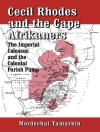An important book, presenting the latest insights by the leading world authorities on naval history.
This book presents a wide range of new research on many aspects of naval strategy in the early modern and modern periods. Among the themes covered are the problems of naval manpower, the nature of naval leadership and naval officers, intelligence, naval training and education, and strategic thinking and planning. The book is notable for giving extensive consideration to navies other than those of Britain, its empire and the United States. It explores a number of fascinating subjects including how financial difficulties frustrated the attempts by Louis XIV’s ministers to build a strong navy; how the absence of centralised power in the Dutch Republic had important consequences for Dutch naval power; how Hitler’s relationship with his admirals severely affected German naval strategy during the Second World War; and many more besides. The book is a Festschrift in honour of John B. Hattendorf, for more than thirty years Ernest J. King Professor of Maritime History at the US Naval War College and an influential figure in naval affairs worldwide.
N.A.M. Rodger is Senior Research Fellow at All Souls College, Oxford.
J. Ross Dancy is Assistant Professor of Military History at Sam Houston State University.
Benjamin Darnell is a D.Phil. candidate at New College, Oxford.
Evan Wilson is Caird Senior Research Fellow at the National Maritime Museum, Greenwich.
Contributors: Tim Benbow, Peter John Brobst, Jaap R. Bruijn, Olivier Chaline, J. Ross Dancy, Benjamin Darnell, James Goldrick, Agustín Guimerá, Paul Kennedy, Keizo Kitagawa, Roger Knight, Andrew D. Lambert, George C. Peden, Carla Rahn Phillips, Werner Rahn, Paul M. Ramsey, Duncan Redford, N.A.M. Rodger, Jakob Seerup, Matthew S. Seligmann, Geoffrey Till, Evan Wilson
Содержание
Introduction — Evan Wilson and Benjamin Darnell and J. Ross Dancy
Spanish Noblemen as Galley Captains: A Problematical Social History — Carla Rahn Phillips
Strategy Seen from the Quarterdeck in the Eighteenth-Century French Navy — Olivier Chaline
Danish and Swedish Flag Disputes with the British in the Channel — Jakob Seerup
Reconsidering the
Guerre de Course under Louis XIV: Naval Policy and Strategic Downsizing in an Era of Fiscal Overextension — Benjamin Darnell
British Naval Administration and the Lower Deck Manpower Problem in the Eighteenth Century — J. Ross Dancy
British Naval Administration and the Quarterdeck Manpower Problem in the Eighteenth Century — Evan Wilson
The Raison d’être and the Actual Employment of the Dutch Navy in Early Modern Times — Jaap R. Bruijn
British Defensive Strategy at Sea in the War against Napoleon — Roger Knight
The Offensive Strategy of the Spanish Navy, 1763-1808 — Agustin Guimera
The Influence of Seapower upon Three Great Global Wars, 1793-1815, 1914-1918, 1939-1945: A Comparative Analysis — Paul Kennedy
The Evolution of a Warship Type: The Role and Function of the Battle Cruiser in Admiralty Plans on the Eve of the First World War — Matthew S Seligmann
The Royal Navy and Grand Strategy, 1937-1941 — George C. Peden
The Atlantic in the Strategic Perspective of Hitler and His Admirals, 1939-1944 — Werner Rahn
The Capital Ship, the Royal Navy and British Strategy from the Second World War to the 1950s — Tim Benbow
‘No Scope for Arms Control’: Strategy, Geography, and Naval Limitations in the Indian Ocean in the 1970s — Peter John Brobst
Sir Julian Corbett, Naval History and the Development of Sea Power Theory — Andrew Lambert
The Influence of Identity on Seapower — Duncan Redford
Professor Spenser Wilkinson, Admiral William Sims and the Teaching of Strategy and Sea Power at the University of Oxford and the United States Naval War College, 1909-1927 — Paul M. Ramsey
Naval Intellectualism and the Imperial Japanese Navy — Keizo Kitagawa
History and Navies: Defining a Dialogue — James Goldrick
Teaching Navies Their History — Geoffrey Till
Afterword — N.A. M. Rodger
John B. Hattendorf’s Bibliography
Об авторе
Matthew S. Seligmann is Professor of Naval History at Brunel University London. An expert in Anglo-German relations before the First World War.












